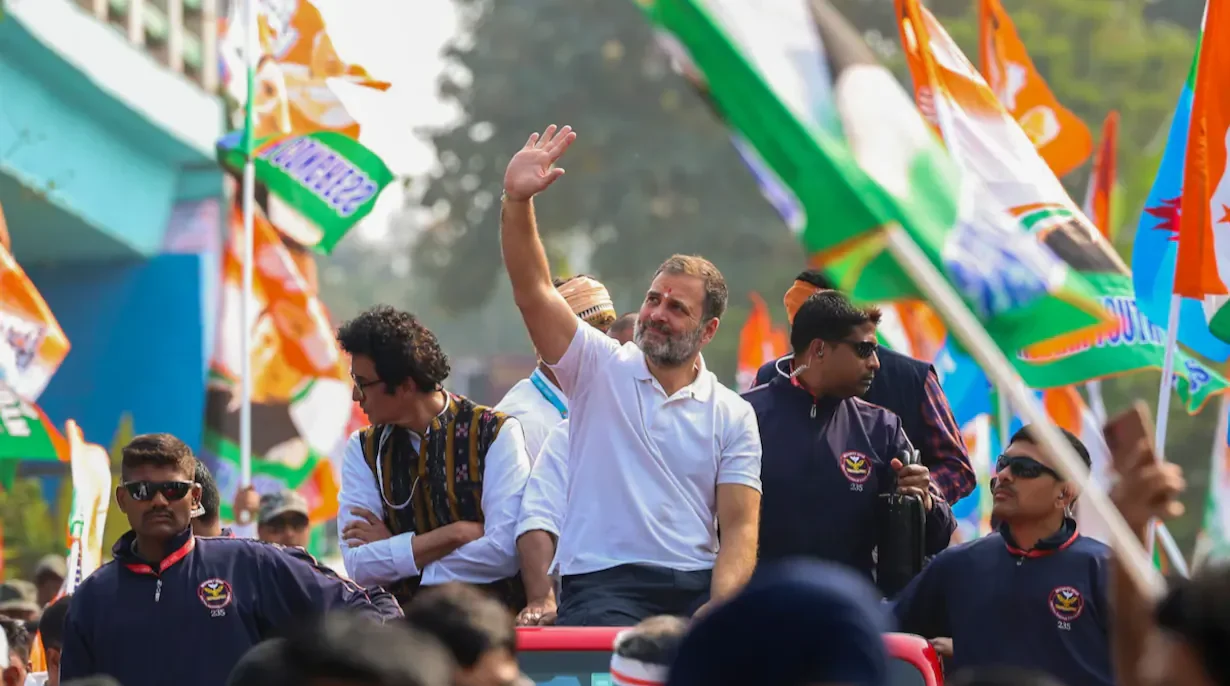Rahul Gandhi, the Congress leader, concluded the Bharat Jodo Nyay Yatra in Mumbai on March 17, marking the end of a significant journey that stretched over 10,000 kilometres across India. This second edition of the yatra, themed around social justice, witnessed the participation of various party allies, highlighting Mr. Gandhi’s evolving role as a prominent figure in anti-BJP politics.
During this extensive yatra, spanning from Manipur to Mumbai, Mr. Gandhi engaged with diverse segments of society, marking a shift towards broader representation of caste groups in power. While the first edition emphasized love and harmony, the second focused on the imperative of social justice, resonating with the party’s ideological framework.
The yatra not only energized Congress cadres but also served as a platform for connecting with party leadership in the lead-up to the general elections. However, electoral outcomes varied across states, with successes in Karnataka and Telangana countered by losses in Chhattisgarh, Madhya Pradesh, and Rajasthan.
As the Congress solidifies its stance against the BJP, challenges arise within the anti-BJP alliance. A delicate balance is crucial, particularly in states where regional forces wield significant influence. The alliance’s cohesion faces tests, exemplified by the fallout in West Bengal, where clashes between Congress and Trinamool Congress disrupted unity.
Amidst this political landscape, the Bharat Jodo Nyay Yatra showcased the Congress’s organizational prowess. Yet, the impending 2024 general elections will scrutinize Mr. Gandhi’s political narrative, centered on left-leaning welfarism and burgeoning secularism. The outcome will delineate the trajectory of anti-BJP politics, with Mr. Gandhi’s leadership at its forefront.






